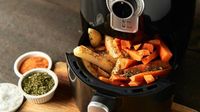Aussie taxpayers have been trying to sneak some "dubious" expenses past the Australian Taxation Office (ATO), with experts detailing some of the most outrageous claims seen this tax season. As the end of the financial year approaches, Australians are reminded to resist the urge to get too creative with their tax returns, especially as the ATO ramps up efforts to clamp down on fraudulent claims.
According to Chartered Accountants Australia and New Zealand tax leader Susan Franks, some of the wildest claims include a client who attempted to write off a luxury yacht as a business expense, asserting they needed it to conduct work on an island. Others have claimed expenses for engagement rings, haircuts, and even pilates equipment, citing reasons like needing to stay fit to renovate rental properties.
“There were many dubious claims related to health, wellness, and personal aesthetics,” Franks noted. “For instance, one individual claimed the cost of a gym membership, arguing they needed to be strong and fit to renovate their rental property. Another attempted to claim a pilates reformer machine due to a sore back.”
Taxpayers have also tried to pass off big-ticket purchases as business-related. Franks highlighted a trend where luxury purchases were claimed under loose connections to jobs. “We noticed one person trying to claim a family trip to a tropical island as related to their earthmoving business,” she said. “Another claimed a luxury yacht as a work expense because they might have some business to do on the islands.”
In addition to these bizarre claims, Australians have attempted to deduct vet bills for pets, pool expenses, and even school fees, all of which the ATO categorically denies as legitimate work-related expenses. The ATO has stated that this year it is particularly focusing on work-related and working-from-home deductions, which are claimed by approximately 15 million taxpayers.
In the last financial year alone, over 10 million Australians claimed work-related deductions, but some took it too far. For example, one mechanic claimed an air fryer, television, gaming console, and other household items as work expenses. Similarly, a fashion industry manager wrongly claimed more than $10,000 in luxury-branded clothing and accessories, arguing they were necessary for her job.
In another instance, a truck driver attempted to claim swimwear used during a highway stop as a work expense, asserting it was necessary to cool off. ATO assistant commissioner Rob Thomson reminded taxpayers that the ATO's role is to ensure the correct amount of tax is collected. Exaggerated claims will not be tolerated.
“While some people have tried their luck with unusual work-related deduction claims, most people realize that to be able to claim an expense, it needs to meet strict criteria,” Thomson said. He emphasized that if a claim doesn’t pass the “pub test,” it’s unlikely to meet ATO standards.
Thomson also pointed out that taxpayers should not fall into the trap of thinking they can claim personal expenses like travel to and from work or childcare costs. “These expenses are personal in nature and cannot be claimed,” he said. “When in doubt, look for guidance on the ATO website or speak with your registered tax agent.”
In a Wednesday statement, the ATO reiterated that work-related expenses must have a close connection to income-earning activities. They should be backed up with proper records, such as receipts or invoices. The ATO has established three golden rules for claiming work expenses:
- You must have spent the money yourself and not been reimbursed.
- The expense must relate directly to your job or the income that you earn.
- The expense cannot be private in nature, or you must ensure to claim deductions only for the work component.
In its efforts to maintain compliance, the ATO noted that exaggerated or mistaken claims could be caught through its data analytics, and penalties may apply in some cases. “Where something doesn’t look right, the ATO will get in contact with you to show that you’ve got records to substantiate your claim and explain why that claim relates to your work income,” Thomson explained.
Last year, the ATO reported a staggering shortfall of $948 million in tax revenue due to the tax gap—the difference between what is expected to be collected and what is actually received. This gap is significantly influenced by exaggerated work-related expense claims.
Among the most outrageous claims last year was a laundromat worker who attempted to deduct around $30,000 for an overseas safari trip, asserting it was a work-related expense. “Obviously, that one was a personal expense,” Thomson remarked, highlighting the absurdity of such claims.
As Australians prepare for tax time, the ATO and tax professionals urge taxpayers to adhere to the rules and avoid making dubious claims. “We understand that some Australians might be tempted to push the boundaries, but let’s avoid making dubious claims this year,” Franks concluded.
Taxpayers are encouraged to keep track of their receipts and consult the ATO’s guidelines or their accountants to ensure their deductions are legitimate. The ATO’s app can assist in compiling tax returns, making the process smoother and more compliant.





